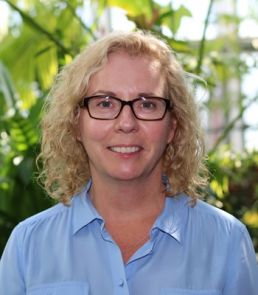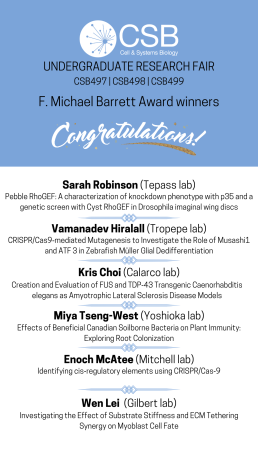Dean Melanie Woodin elected as Vice-President of the Canadian Association for Neuroscience
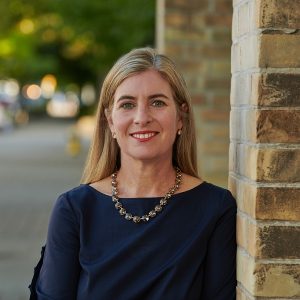 Congratulations to CSB Professor Melanie Woodin on her election as Vice-President of the Canadian Association for Neuroscience (CAN). Prof Woodin has an outstanding track record of scientific productivity and achievements. Her team has spearheaded major advances in our understanding of mechanisms regulating inhibitory synaptic transmission and plasticity in the central nervous system. Of particular interest is her work on the role of excitation/inhibition imbalances in neuropathological disorders including Huntington disease, amyotrophic lateral sclerosis, and autism spectrum disorders.
Congratulations to CSB Professor Melanie Woodin on her election as Vice-President of the Canadian Association for Neuroscience (CAN). Prof Woodin has an outstanding track record of scientific productivity and achievements. Her team has spearheaded major advances in our understanding of mechanisms regulating inhibitory synaptic transmission and plasticity in the central nervous system. Of particular interest is her work on the role of excitation/inhibition imbalances in neuropathological disorders including Huntington disease, amyotrophic lateral sclerosis, and autism spectrum disorders.
Prof Woodin's recent work showed that adeno-associated virus-mediated delivery of chemogenetic technology increased the activity of interneurons in the primary motor cortex and effectively delayed the onset of amyotrophic lateral sclerosis-associated motor deficits, promoted neuronal survival, and increased lifespan (Brain 2020). These exciting findings provide new insights into the pathogenesis and treatment of amyotrophic lateral sclerosis. The impact of her work is evident in the quality, novelty, and originality of her scientific publications.
Prof Woodin is currently the Dean of the Faculty of Arts & Science at the University of Toronto, one of the many important leadership roles she has played at the University of Toronto over the years.
Prof Woodin has been a strong supporter of CAN since its inception, serving in the role of Symposium Organizer (2008, 2011), Executive Board Member (2013-2016), Meeting Organizer (2016), and Chair of the Advocacy Committee (2018-2019). Her outstanding contributions to neuroscience research, effective leadership qualities, and community service make her uniquely qualified for the position of CAN’s next Vice-President.
Whales evolved swiftly to become deep divers
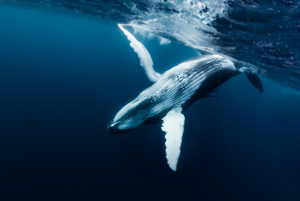 Surprising details about the transition of early whales from living on shore to diving down to feast on deep-dwelling prey have been revealed by Dr Sarah Dungan and Professor Belinda Chang of EEB and CSB. Their pivotal result shows that early whales had visual systems adapted to deep diving, firmly linking this change in behaviour to swift evolutionary adaptation.
Surprising details about the transition of early whales from living on shore to diving down to feast on deep-dwelling prey have been revealed by Dr Sarah Dungan and Professor Belinda Chang of EEB and CSB. Their pivotal result shows that early whales had visual systems adapted to deep diving, firmly linking this change in behaviour to swift evolutionary adaptation.
Deep diving by marine mammals is one of the great evolutionary transitions, along with powered flight and living on land, and reveals much about how quickly life can adapt in a changing world.
Whales evolved from mammals that share a common ancestor with hippos and that were partially aquatic. The great mystery of their transition to deep sea foraging was how quickly this ability developed. Dungan had an early fascination with transitional whale fossils, but it wasn’t until she took a course on molecular evolution from Professor Chang that she became inspired to extend her interest in whale fossils to the molecular level. They focused on the rhodopsin protein, which absorbs light and sends a signal that travels through the retina to the brain.
Dungan applied robust data science models to rhodopsin proteins from a variety of living whales and related mammals. This computerized analysis revealed a gene sequence representing the rhodopsin found in the common ancestor of all living whales. Dungan expressed this gene in lab-grown cells to ‘resurrect’ the predicted protein and experiment on purified samples.
Dungan and Chang were astonished by the biochemical properties of the resurrected protein compared to land mammals. Early whale rhodopsin was more sensitive to the blue light that penetrates deepest into the ocean, to a degree that exceeded expectations. Its biochemical properties also suggested that the retinas of early whales could respond rapidly to changes in light levels.
These results mean that the common ancestor of living whales was already a deep diver, able to see in the blue twilight zone of the ocean, with eyes that swiftly adjusted to dark conditions as the whale rushed down on a deep breath of surface air.
Early whales eventually evolved into the many kinds of toothed whales and baleen whales we see today. As separate species of whale evolved, they established ecological niches at various levels of the sea and even in freshwater rivers. Dungan and Chang’s work shows that there were further evolutionary adaptations as members of both groups either surfaced from the early deep levels to hunt closer to the surface or specialized to become even more extreme divers.
This work is published in the journal Proceedings of the National Academy of Sciences as “Ancient whale rhodopsin reconstructs dim-light vision over a major evolutionary transition: Implications for ancestral diving behavior”. Dungan and Chang now plan to resurrect the ancestral whale proteins that transmit the rhodopsin light signal from the retina to the brain to provide insights into the neurological adaptations associated with deep diving. As they probe ancient evolutionary adaptations associated with new behaviours, we will gain greater insight into how animals may adapt to our changing world.
Long-term Research at CSB supported by NSERC Discovery Grants 2022
Congratulations to five researchers at CSB who have earned Discovery Grants starting in 2022 from the National Science and Engineering Research Council (NSERC). This program supports ongoing programs of research with long-term goals over five years rather than supporting a single short-term project.
These grants recognize the creativity and innovation that are at the heart of all research advances. Recipients are not restricted to the specific activities described in their applications, but can pursue topics that grow out of their discoveries. Broadly, this will support CSB research in Molecular Evolution, Systems Biology, Plant Biology, Developmental Biology and Neuroscience. The grants were awarded for the following programs in CSB:
Prof Belinda Chang: Molecular evolution of vision and visual pigments
Prof Darrell Desveaux: Systems Biology of the Plant Effector-Triggered Immunity Landscape
Prof Nicholas Provart: Understanding drought tolerance with cell-type specific-data sets and computational approaches
Prof Ulrich Tepass: Mechanisms regulating epithelial stem cell behaviour
Prof Vincent Tropepe: Neurogenic plasticity and brain development
Tamar Mamourian's Thriving Legacy
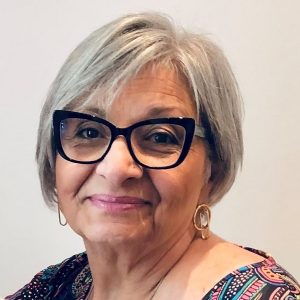 Tamar Mamourian is a powerhouse of knowledge in designing and implementing policy to benefit the University of Toronto community. She recently retired as Chief Administrative Officer of Cell & Systems Biology (CSB), but her legacy spreads well beyond this Department.
Tamar Mamourian is a powerhouse of knowledge in designing and implementing policy to benefit the University of Toronto community. She recently retired as Chief Administrative Officer of Cell & Systems Biology (CSB), but her legacy spreads well beyond this Department.
Tamar’s fondest memory of her time at UofT is the respect and support she received from her colleagues. “If there was anything that I needed assistance with I would extend a [request] for one person. Word will go around I will get not one but five people to help me.” Tamar is grateful for the support she received from a range of Chairs and Deans within the Faculty of Arts & Science. This appreciation grew out of Tamar’s fierce advocacy for making the right thing happen.
In any office, the right thing is hard to plan and execute, but Tamar had an insightful mind and deep experience. A path through the financial systems of the University was the source of Tamar’s effectiveness. As the complexity of expenditures she handled increased from invoicing through reimbursement and operations to CAO, she sought out and applied the reason behind each expenditure policy.
A consistent, reasonable resolution that could be clearly explained to all concerned parties is her hardest-won skill: “The most difficult thing to manage was reconciling the nitty-gritty of science grant funding, so that when you applied a charge to a grant, the reason was clear. Going from financial management to supporting a science department was my greatest professional challenge. I didn’t think I had it in me, but shame on me if I had given up!”
When the University decentralized financial systems (including grants) to the departments, Tamar became actively involved in designing clear policies and procedures. She made the Botany Department a model for the University when she led the pilot to bring all Botany accounting in-house. As the expert on developing and implementing systems for in-house accounting, she was trusted to train staff throughout the Faculty. Botany eventually merged with Zoology and CSB came out of that merger.
CSB Professor Daphne Goring says “I was very grateful that Tamar was my CAO as Chair (2006-2009) for the newly formed CSB Department. Not only were we carrying out all the regular duties of our positions, but Tamar and I were also working closely together to set up the foundations of the new department. I truly appreciated Tamar’s depth of University knowledge and frequent wise advice to help guide me through this process.”
Tamar trains and manages people by sharing her expertise and adds a caring approach. Prof Goring found that “Tamar is a wonderful and kind person, always with a smile on her face, and a real pleasure to work with.”
Tamar says the best part of her job was to make a difference in someone’s life; “I thrive on making a difference; by reaching out, by listening, understanding where they were coming from and making it so they wanted to come to work every day.” This creates an environment of support staff at CSB’s office who love what they are doing.
The Ramsay Wright Building where CSB has its office is a cranky construction that conceals many dormant defects. As building manager, Tamar dealt with frequent flooding, expiring elevators and numerous other crises. She resolved these dilemmas by sourcing the correct person with the necessary skills. Tamar replaced all three malfunctioning elevators and was driven to resolve the flooding problem by replacing the entire roof. She provided support to other divisions housed in Ramsay Wright, such as the Biological Sciences and Imaging Facilities.
This role took on menacing aspects in March 2020 as we were all told to stay home. With courage and honour, Tamar stubbornly took it upon herself to be the only one in Ramsay Wright every day. She felt she had to be there for perishable scientific samples still arriving through delayed supply chains, and to support care for the plants, animals, and stored samples in the building. As hospitals in Toronto became desperate for masks, gloves, and bleach, she coordinated building access so CSB could donate our stocks to the hospitals.
Despite being destined for retirement, Tamar stayed on throughout the pandemic, even training new staff as services gradually resumed. She leaves a happy and thriving department to Benjamin Eldridge, her successor as CAO. As she retires, we will all miss her and take to heart her last message to the Department: “Sign Up! Show Up! Never Give Up!”
Professor Melody Neumann earns U of T's highest teaching honour
Melody Neumann, Associate Professor in CSB and Director of the Human Biology Program, has been awarded the President's Teaching Award, the highest honour for teaching at the University of Toronto. This award recognizes Prof Neumann's sustained and ongoing excellence in Educational Leadership, Teaching Excellence and Educational Innovation
The Award citation details Prof Neumann's many accomplishments
Since joining the University of Toronto, Professor Neumann has developed, taught, and coordinated biology courses ranging from large first and second-year cell and molecular biology courses with labs, to flipped and online courses, to advanced project-based laboratory and team-based research courses.
Professor Neumann has created numerous animations related to cell and molecular biology as well as authentic assignments for assessing scientific writing, reasoning, and information literacy skills for both majors and non-majors. Professor Neumann is the creative inventor of Team Up!, a group based-assessment tool that has been successfully used by more than 20,000 students for active learning, peer teaching, and team skill development in large, hybrid, and fully online classes. Professor Neumann has been instrumental in the continued development and pedagogical support of Team Up! in more than 150 courses across all three University of Toronto campuses.
Professor Neumann is widely recognized as an innovative and skilled educator both within the University and beyond. She has been the primary or co-investigator on more than 15 successful institutional and provincial teaching and learning grants. She has been a recipient of the Faculty of Arts and Science Dean’s Outstanding Teaching Award and is an inaugural member of the Faculty of Arts and Science Online Teaching Academy, where her innovations have provided benefit to instructors and students across U of T. Her expertise as an educator has been recognized by other institutions through her work as an external reviewer as part of the Ministry of Colleges and Universities’ Quality Assurance Framework and she has garnered recognition at the international level through invited presentations and two international awards for her group assessment application, Team Up!
We are proud to have her on our team. Congratulations!
Renewed Canada Research Chair for Prof Fernandez-Gonzalez
Congratulations to Professor Rodrigo Fernandez-Gonzalez on the renewal of his tier two Canada Research Chair in quantitative cell biology and morphogenesis! Professor Fernandez-Gonzalez studies cytoskeletal dynamics and mechanical forces in the assembly and repair of epithelial tissues. His lab focuses on wound repair, heart development and collective cell behaviours in epithelial morphogenesis.
Platform for Plant Stress Signaling Analysis earns crucial NSERC-RTI grant
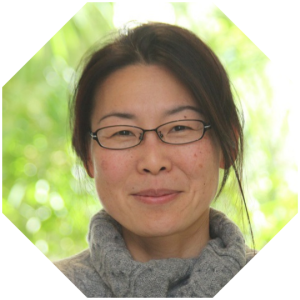 The Platform for Plant Stress Signaling Analysis at CSB examines the ways plants respond to drought, salt, infection and other stresses. We have been using this platform for 17 years, but many of the instruments are showing signs of wear. To update our facility, a group led by Professor Keiko Yoshioka has won a highly competitive NSERC Research Tools and Instruments Grant.
The Platform for Plant Stress Signaling Analysis at CSB examines the ways plants respond to drought, salt, infection and other stresses. We have been using this platform for 17 years, but many of the instruments are showing signs of wear. To update our facility, a group led by Professor Keiko Yoshioka has won a highly competitive NSERC Research Tools and Instruments Grant.
This important infrastructure revitalization allows existing work to continue on crop damage that is exacerbated by climate change, while allowing new studies to flourish. The newly funded instruments are ideal items for a shared platform and will ensure usage at full capacity.
Professor Yoshioka will uncover mechanisms of plant stress signal transduction and crosstalk. The Yoshioka lab focuses on signal transduction of plant stress responses; environmental effects on plant immunity; and abiotic and biotic stress response networks. These studies will feed into the production of stress-resistant plants.
Professor Heather McFarlane was recently appointed to pursue studies on finding a pathway to improve bio-products. Her lab will use the NSERC-RTI facility to uncover the molecular mechanisms of cell wall signaling, to improve cell wall engineering and plant biomass production.
Professor Darrell Desveaux will be tracking plant disease progression via systems-level analyses. The Desveaux lab is dedicated to the development of high-throughput assays for “Systems-Level” probes of plant-pathogen interactions.
Professor and Chair Nicholas Provart will leverage large datasets to understand plant resilience under drought stress. His lab has developed the INTACT (Isolation of Nuclei Tagged in Specific Cell Types) system for studying cell-type-specific drought responses in guard cells. The NSERC-RTI grant will assist them to pursue molecule-level work on understanding the role of hundreds of promising candidate genes in guard cell-specific drought response.
Learning to isolate and analyze DNA, RNA, proteins, and metabolites using the updated equipment is an essential component of any training program in cell and molecular biology. The skills of dozens of BSc, MSc and PhD students will grow from learning to use this platform, and Canadian crops will benefit. Congratulations!
Congratulations to F Michael Barrett Award 2022 winners from CSB!
Students taking our CSB497/CSB498/CSB499 courses earned valuable experience in CSB research labs, gaining skills and knowledge in specific fields including developmental biology, plant biology, and stem cell biology. Our professors welcome the curiosity and questioning that these undergraduates bring to their lab.
Six of these fourth year scientists gave exceptional presentations on the research they performed, and were presented with the F Michael Barrett Award for 2022. Congratulations!
The students, their research supervisor and their topic of research are as follows:
Sarah Robinson (Tepass lab)
Pebble RhoGEF: A characterization of knockdown phenotype with p35 and a genetic screen with Cyst RhoGEF in Drosophila imaginal wing discs
Vamanadev Hiralall (Tropepe lab)
CRISPR/Cas9‐mediated Mutagenesis to Investigate the Role of Musashi1 and ATF3 in Zebrafish Müller Glial Dedifferentiation
Wen Lei (Gilbert lab)
Investigating the Effect of Substrate Stiffness and ECM Tethering Synergy on Myoblast Cell Fate
Miya Tseng-West (Yoshioka lab)
Effects of Beneficial Canadian Soilborne Bacteria on Plant Immunity: Exploring Root Colonization
Enoch McAtee (Mitchell lab)
Identifying cis‐regulatory elements using CRISPR/Cas‐9
Kris Choi (Calarco lab)
Creation and Evaluation of FUS and TDP‐43 Transgenic Caenorhabditis elegans as Amyotrophic Lateral Sclerosis Disease Models
CSB Professor Shelley Lumba aims to alleviate global hunger by preventing crop loss caused by parasitic plants
Professor Shelley Lumba was recently appointed to the post of Associate Professor in Cell & Systems Biology to pursue her work on the molecular signalling that activates germination in parasitic plants. Her work was profiled in a piece from UofT News titled "Researcher aims to alleviate global hunger by deciphering the molecular 'language' of plants".
Guzzo lab assesses UV technology to inactivate HIV-1 and hCoV-229E
Prof Christina Guzzo's lab has published a study in Virology Journal looking at UV treatment to inactivate Human Immunodeficiency Virus and the seasonal human coronavirus 229E. Her students Arvin Persaud and Jonathan Burnie published their results as "A UV-LED module that is highly effective at inactivating human coronaviruses and HIV-1". Details of their work, and their collaboration with Toronto company Safe Antiviral Technologies Inc to apply these findings outside the lab is available from UofT News as "With the flip of a switch, UV-LED lights could be used to kill coronaviruses and other germs".


